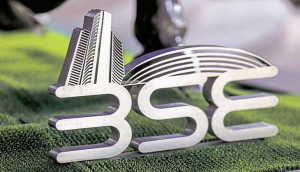
The 7th Pay Commission on 19 November announced a bonanza of sorts for government employees and pensioners with a 23.55 per cent hike in salary, allowances and pension. The panel has doubled the entry and top level pay and also favoured OROP for civilians.
These recommendations by the commission will benefit 47 lakh central government employees and 52 lakh pensioners. On the flipside, it will impact the Central Budget by Rs 73,650 crore and the Railway Budget by Rs 28,450 crore - a major cut into the government budgets.
Catch enlists major details from the Seventh Pay Commission report:
How much will it cost the government?
The staggering increase in salary and allowances of central government employees and pensioners will put a strain on exchequer to the tune of Rs 1.02 lakh crore in 2016-17.
The 7th Pay Commission report stated:
"The total financial impact in the FY 2016-17 is likely to be Rs 1,02,100 crore, an increase of nearly 23.55 per cent over the business as usual scenario".
Preference for IAS and IFS
The 7th Pay Commission is split on continuing the supremacy of the IAS and the IFS over services like the IPS with its member and former secretary Vivek Rae differing with the recommendation of the chairman for parity.
According to reports, the 900-page report of the Seventh Pay Commission lists four points where there was no unanimity of the view between the members of the Commission on the issue.
Other key details:
The recommendations are to be implemented from January 1, 2016.
The minimum pay for government employees has been fixed at Rs 18,000 per month.
The maximum pay for government employees has been fixed at Rs 2.25 lakh.
The rate of annual increment has been retained at 3%.
A 24% hike in pensions recommended.
The One Rank One Pension (OROP) has been proposed for civilian government employees on line of OROP for armed forces.
The Cabinet Secretary will get Rs 2.50 lakh as against the current Rs 90,000 per month pay band.
Disappointment over gap between minimum and maximum pay
The RSS-affiliated Bharatiya Mazdoor Sangh (BMS) slammed the recommendations of the Seventh Pay Commission. "The report is disappointing on many counts. There is now a huge gap between the minimum and maximum pay. The minimum is kept at Rs 18,000, while the maximum is Rs 2.5 lakh. This gap should not be more than 1:10, but it is way above," BMS general secretary Vrijesh Upadhyay told the Indian Express.
What the report says about civil servants:
The report adds, "Civil servants today need to be focused on outcomes, not processes, and have to be more accountable for delivery. They have to be agents of change and to this end need to be more agile, more technically savvy and to be able to ensure the economic and public service reforms that are essential."
"In this context, that the service related claims for any top position are not relevant anymore, and what is important is that the right person is selected for every job. The analysis and the recommendations in the paragraphs that follow reflect this approach," it further added.
Two-fold hike in military service pay
The 7th Pay Commission has also recommended more than doubling the 'Military Service Pay' to defence officials. The panel also suggested that Short Service Commissioned Officers should be allowed to exit the Armed Forces at any point in time between 7 and 10 years of service.
Finance ministry to work out implementation
The Finance Ministry has said it can handle financial implications of the recommendations of the Seventh Pay Commission and will work out modalities for implementation of the suggestions.
"There are challenges, we will face that... It's not going to impact this fiscal. By the time it is implemented, it goes into next financial year and our growth prospects are good, our economy is pretty robust, we will handle this," Finance Secretary Ratan Watal was quoted as saying by agencies.







![BJP's Kapil Mishra recreates Shankar Mahadevan’s ‘Breathless’ song to highlight Delhi pollution [WATCH] BJP's Kapil Mishra recreates Shankar Mahadevan’s ‘Breathless’ song to highlight Delhi pollution [WATCH]](https://images.catchnews.com/upload/2022/11/03/kapil-mishra_240884_300x172.png)

![Anupam Kher shares pictures of his toned body on 67th birthday [MUST SEE] Anupam Kher shares pictures of his toned body on 67th birthday [MUST SEE]](https://images.catchnews.com/upload/2022/03/07/Anupam_kher_231145_300x172.jpg)






